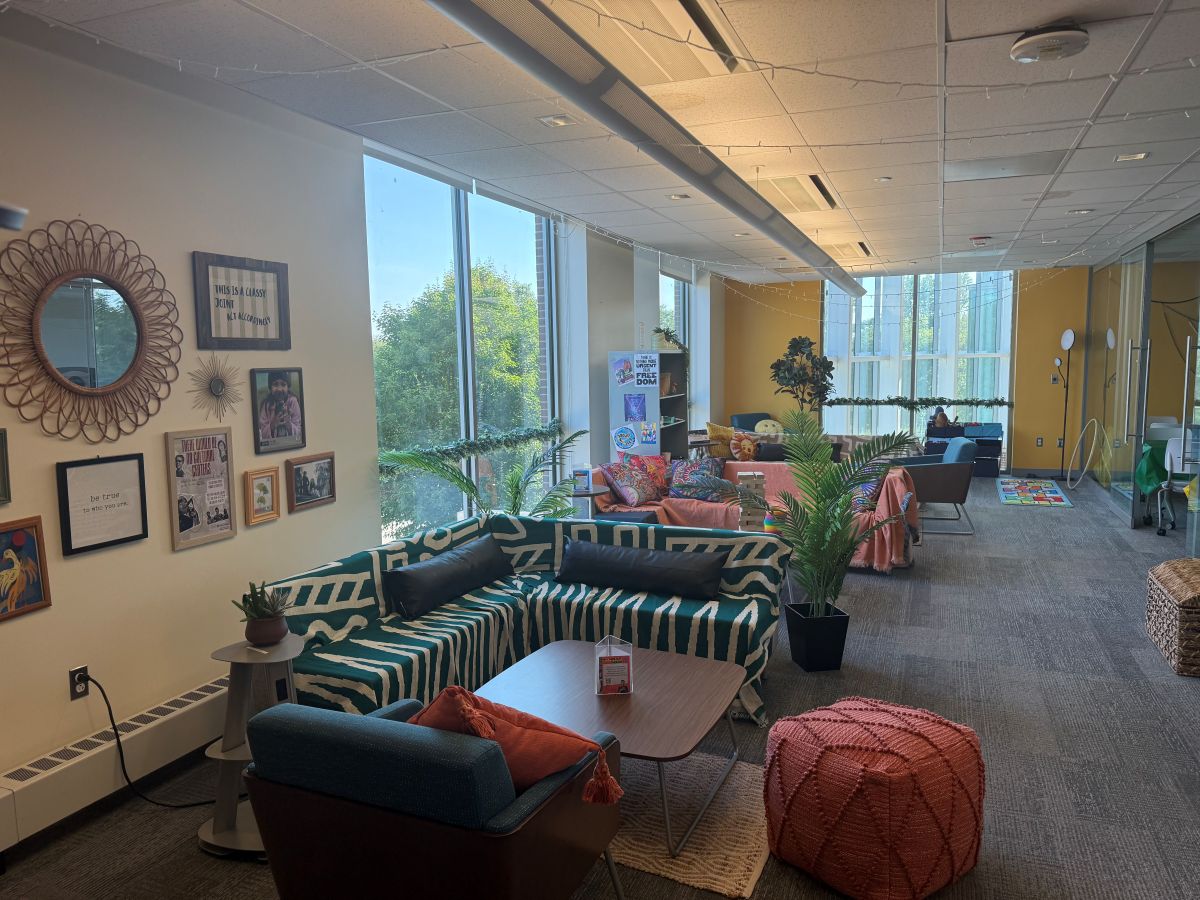Harper Alert: Due to extreme cold, Harper College campuses will be closed Friday, January 23. Learn more: http://bit.ly/36jRbZ8

Located in Building D, Room D-281 (above Starbucks)
Fall Hours:
Monday-Thursday: 8:00 AM - 4:30 PM
Friday: 8:00 AM - 12:00 PM
Please note: You can view the most up-to-date Cultural Center Calendar HERE.
Under the vision of Dr. Avis Proctor, Dr. Tamara Johnson led the opening of the Cultural Center in November 2021, thanks to the research and request of many Harper employees and students. Overseen by the Office of Diversity, Equity and Inclusion, the Cultural Center at Harper College is a culturally-affirming, educational lounge and event space for students and employees. Serving as an academic and social space, all employees and students are encouraged to build connections, express their identities and values, engage in dialogue, and enjoy a place where they can have a sense of belonging on campus. Dr. Brittany Barber served as the inagural Manager of the Cultural Center.
The Cultural Center enhances the Harper community by:
Stop by and see for yourself why over 4,300 people attended the Cultural Center in 2023-2024!
When the doors are open, so are we! Expect to be greeted by a Cultural Center Student Aide at the front desk. You'll be asked to provide your Harper ID number to check in. Once you enter, you may notice vibrant music playing, overhear conversations at different couches and tables, see colorful artwork on the walls, and see diverse groups of people laughing and talking. Enjoy the lounge space and kitchenette, read a book on our shelves, play a game, and participate in one of our many, regular programs!

The Cultural Center hosts a variety of opportunities for Harper faculty, staff, and students to get involved. If you are a student organization or employee department seeking to host an event in the space, please click the link below to submit your reservation request. Priority of reservations are on a first-come, first-served basis. The space is not available for booking on weekends or after the Cultural Center is closed.
The Cultural Center offers: